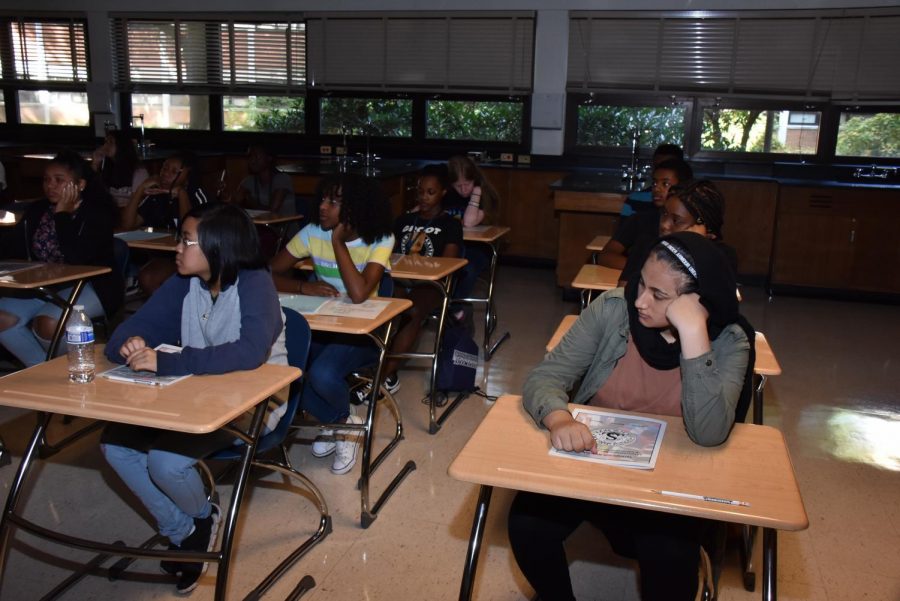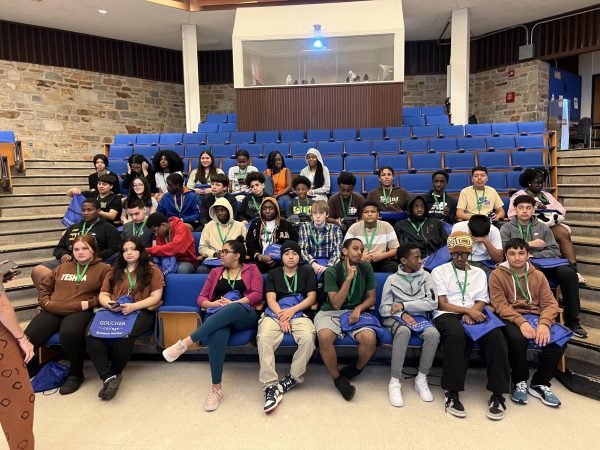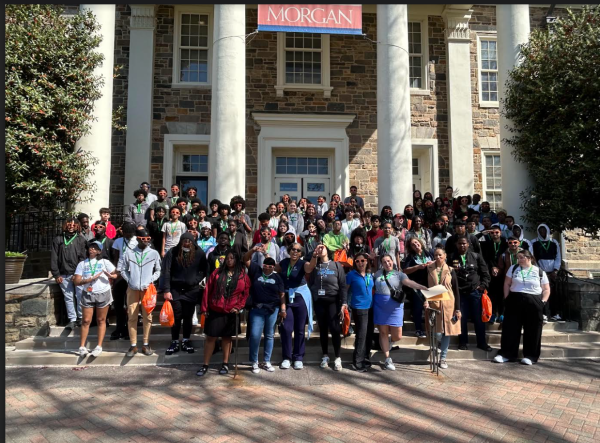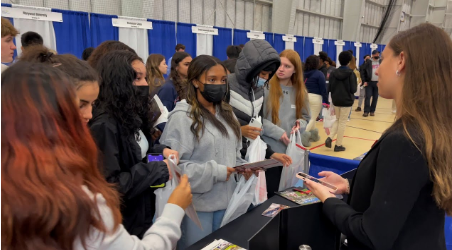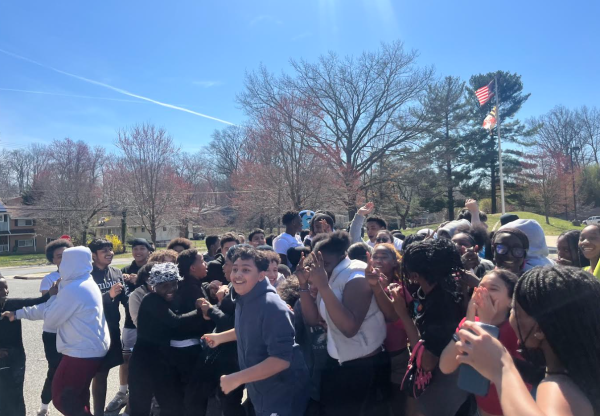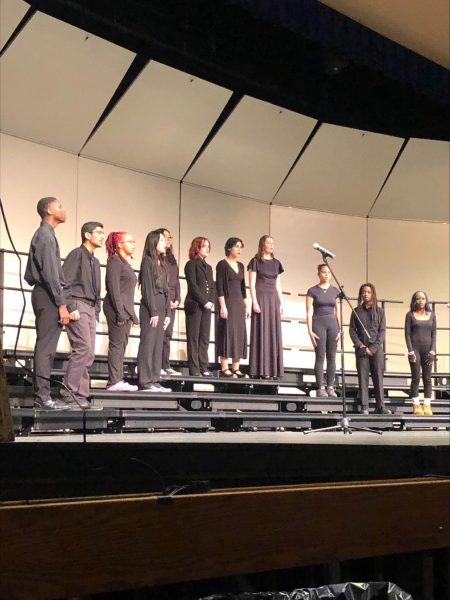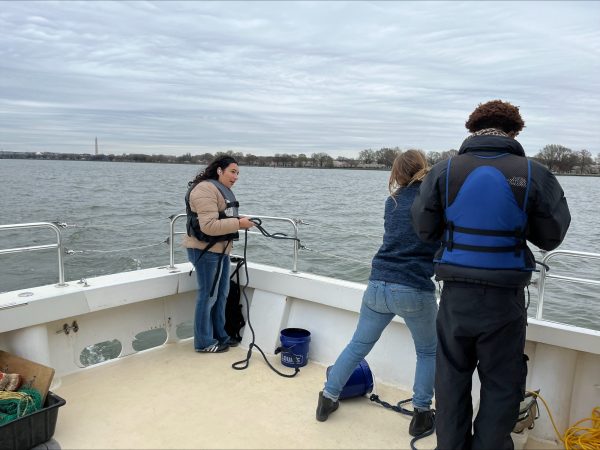IB Program under scrutiny
photo by Trident Staff
The International Baccalaureate (IB) Program consists of four parts, two of which are hosted at Springbrook – the Middle Years Program (MYP) and the Diploma Program. IB courses are intended to challenge students from a global approach, by aligning the curriculum of each class with the IB Learner Profile, a list of ten core traits valued by each IB School to help students become better citizens of the world. The philosophy of teaching at Springbrook High school, an IB world school, aims to align itself with this learner profile to prepare students for the rigor they will face in the real world. Springbrook High School is proud to be one of only eight schools in the county and the only school in the NEC that offers the IB program.
According to the 2017 Advanced Placement and International Baccalaureate Course Enrollment and Exam Participation and Performance memorandum, 336 Springbrook students took one or more IB exams, and 194 earned a passing score of 4 or higher (57.7%). While these results are relatively higher than some our our neighboring schools (John F. Kennedy – 28.8% and Watkins Mill – 49.5%), Springbrook performance rates have been significantly lower than the five other IB schools in the county as well as the Montgomery County average of 74.2%.
In addition, the total number of exams taken by Springbrook students (336) were much lower than those of Richard Montgomery High School (983 exams) and Bethesda-Chevy Chase (652 exams). It is no coincidence that these are the two schools with the greatest socioeconomic difference in comparison to Springbrook High School.
High schools that have a lower minority population tend to score higher performance rates, such as Bethesda-Chevy Chase, in which 89.3% of students who took one or more IB courses earned a passing score. One of the major causes of these disparities is the growing achievement gap between students of different economic and racial backgrounds.
According to Mr. Weinshel, Springbrook’s IB MYP Coordinator, “Springbrook is a part of a group of schools who are working with a company called EOS, Equal Opportunity Schools.”
The goal of this organization is to ensure educational equity for students affected by the racial and economic achievement gap by assisting schools in diversifying enrollment in AP/IB courses.
“Each year we identify over 150 students who, because of our intervention, are now enrolling in AP and IB classes,” Weinshel said, “and that’s one of the ways we are fighting the achievement gap.”
Springbrook administration has been encouraging more students to enroll in challenging courses, specifically in IB classes. Since the 2017-2018 school year, AP English Language and Composition and AP English Literature and Composition have been limited to seniors only. Rising juniors are now restricted to Honors English 11 or IB English 1, the first half of a two year course. Although Principal Dr. Williams has confirmed that seniors will have the option to opt out of IB English after completing their first year, some students feel as though they are being stripped of the opportunity to take a course that’s offered to students their age nationwide, placing them at a disadvantage.
“I feel like there shouldn’t be a restriction on AP English classes because some students simply prefer AP over IB,” sophomore Ruth Efrem told The Blueprint. “Students who want to challenge themselves and take rigorous courses shouldn’t be limited to IB, especially if they don’t plan on doing the full IB Diploma Program.”
“As a principal, when you have limited resources, you have to make choices,” Dr. Williams said in an interview.
With regard to juniors no longer being able to take an AP English course, “the decision to move to IB English for the eleventh-grade year was in part because our students do very well on their IB exams and course.” Dr. Williams went on to say that he “personally [thinks] students will be at an advantage by taking the IB course before they take the AP course” because the classes “compliment each other.”
This administrative decision now has school community members asking if Springbrook is distancing itself from certain AP classes in an attempt to strengthen the IB program. Dr. Williams has confirmed that there is no plan to “drastically get rid of a large number of AP courses” because “maintaining options” for parents and students is the priority as of right now. The ultimate factors regarding the reduction of classes, however, “would come down to enrollment and resources,” Williams said.
However, Springbrook IB English and World Language classes continue to excel in class and on exams. According to IB Coordinator, Ms. Trivers, “last year, 98% of our IB English students who took the test passed.” Ms. Trivers also mentioned that students tend to perform lower in STEM courses when it comes to IB Exams.
“Montgomery County keeps changing its curriculum, so the foundation isn’t quite as strong as it once was,” Trivers said, explaining that these curriculum changes were a partial cause of inconsistency in student performance across departments.
This summer, a number of IB teachers will be attending trainings and conferences where they will be able to discuss with teachers from different schools and across all subject areas to improve the IB program.
Some IB students, like junior Surafel Mengist, want to see new course options added for students pursuing the IB program. “Our current options for IB classes are limited compared to other schools, like Richard Montgomery,” Mengist stated.
Ms. Trivers also told The Blueprint that Springbrook may be adding new IB courses next year including: IB Economics, IB Dance, and IB Sports, exercise and health science. In other words, students should expect the program to continue to grow over the coming years.

